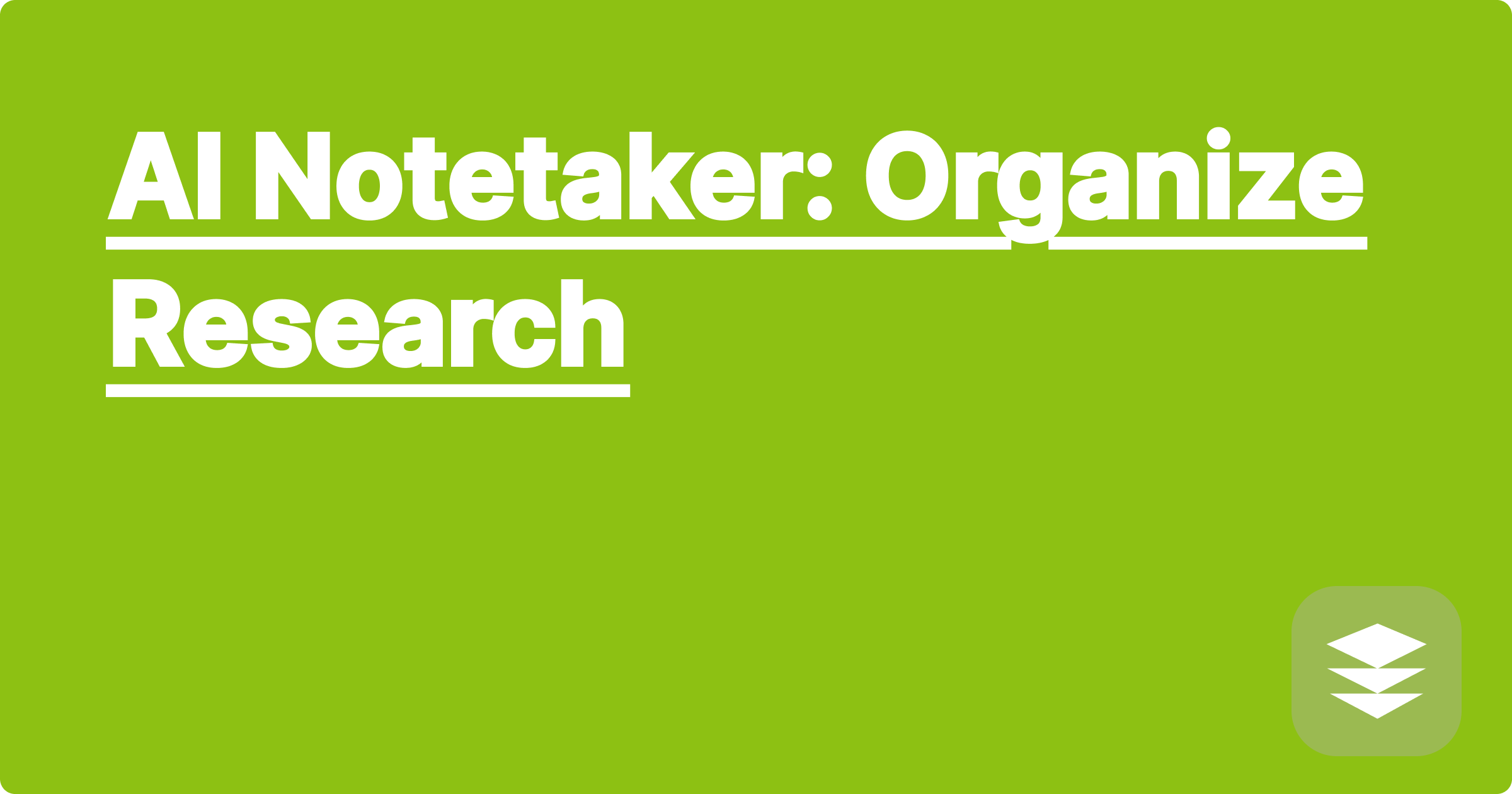
The sheer volume of information encountered in STEM fields can feel overwhelming. From dense textbooks and journal articles to complex datasets and lecture notes, managing this information effectively is crucial for success. Traditional note-taking methods often fall short, struggling to keep pace with the rapid influx of knowledge. However, the advent of AI-powered notetakers offers a transformative solution, enabling STEM students and researchers to organize their research, analyze data, and unlock valuable insights with unprecedented efficiency. Imagine having a virtual research assistant capable of sifting through mountains of data, identifying key concepts, and generating concise summaries. This is the promise of AI notetakers, and in this blog post, we'll explore how these powerful tools can revolutionize your STEM workflow.
For STEM students and researchers, effective information management is paramount. The ability to quickly access, analyze, and synthesize information directly impacts the quality and efficiency of research projects, coursework, and exam preparation. AI notetakers offer a significant advantage by automating tedious tasks, freeing up valuable time for critical thinking, experimentation, and analysis. This shift from manual note-taking to AI-powered organization allows students and researchers to focus on the core aspects of their work, ultimately leading to greater productivity and deeper understanding. By embracing these tools, you can not only streamline your current workflow but also future-proof your skills for an increasingly AI-driven world.
STEM fields are characterized by complex concepts, intricate data sets, and a constant influx of new research. Traditional note-taking methods, while valuable, often struggle to keep up. Manually summarizing articles, transcribing lectures, and organizing research materials can be incredibly time-consuming, leaving less time for actual learning and analysis. Furthermore, traditional notes can be disorganized and difficult to search, making it challenging to retrieve specific information when needed. This information overload can lead to frustration, decreased productivity, and ultimately hinder academic progress. The challenge lies in finding a way to efficiently manage this vast amount of information while simultaneously extracting meaningful insights and connections.
AI notetakers, powered by advanced natural language processing and machine learning algorithms, offer a powerful solution to this challenge. Tools like ChatGPT, Otter.ai, and Fireflies.ai can transcribe lectures and meetings, summarize articles, and even generate key takeaways automatically. These tools can significantly reduce the time spent on manual note-taking, allowing you to focus on understanding the material and conducting your own research. For example, imagine using Otter.ai to transcribe a complex lecture on quantum mechanics. Instead of frantically scribbling notes, you can actively listen and engage with the material, knowing that a complete transcript will be available for review later. Similarly, tools like ChatGPT can summarize lengthy research papers, extracting key findings and providing a concise overview of the study.
Let's walk through a practical example of using an AI notetaker for a research project. First, gather all your research materials, including journal articles, conference papers, and online resources. Next, upload these documents into an AI notetaker like Evernote or Notion, which offer AI-powered features for summarizing and organizing information. As you read through each document, use the AI features to generate summaries and highlight key concepts. These tools can also automatically tag and categorize your notes, making it easy to search and retrieve information later. As you progress, use the AI notetaker to synthesize information from multiple sources, identifying common themes and contrasting viewpoints. This allows you to build a comprehensive understanding of the topic and develop your own unique insights.
Consider a biology student researching the effects of climate change on coral reefs. They could use an AI notetaker to analyze a large dataset of ocean temperatures and coral health indicators. The AI tool could identify trends and correlations, helping the student draw conclusions about the impact of rising temperatures on coral survival. In another example, a physics student studying the properties of black holes could use an AI notetaker to summarize complex research papers on general relativity. The AI tool could extract key equations and concepts, allowing the student to grasp the fundamental principles more quickly. Finally, an engineering student designing a new type of bridge could use an AI notetaker to organize and analyze data from simulations and stress tests. The tool could identify potential weaknesses in the design and suggest improvements, leading to a more robust and efficient structure.
To maximize the benefits of AI notetakers, actively engage with the material. Don't simply rely on the AI to do all the work. Use the summaries and key takeaways generated by the AI as a starting point for your own analysis and synthesis. Experiment with different AI notetakers to find the one that best suits your learning style and research needs. Some tools are better suited for transcribing lectures, while others excel at summarizing research papers. Develop a consistent workflow for using AI notetakers in your studies. Integrate them into your daily routine to ensure that you're capturing and organizing information effectively.
Finally, remember that AI notetakers are tools, not replacements for critical thinking and intellectual curiosity. Use these tools to enhance your learning and research, but don't let them replace your own engagement with the material. By combining the power of AI with your own intellectual efforts, you can unlock new levels of productivity and achieve greater success in your STEM studies and research. Explore the various AI tools available, experiment with different workflows, and discover how these powerful technologies can transform your academic journey. Embrace the future of learning and research by incorporating AI notetakers into your toolkit today.
AI in CAD: Design Faster, Smarter
AI Study Buddy: Master STEM Exams
AI for Physics: Solve Problems Fast
AI Notetaker: Organize Research
AI Simulations: Optimize Designs
AI Math Solver: Conquer Problems
AI for STEM Exams: Conquer Your Tests